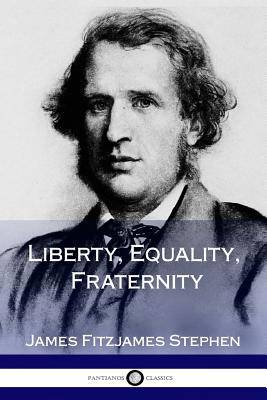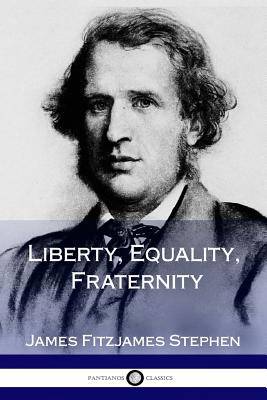
Door een staking bij bpost kan je online bestelling op dit moment iets langer onderweg zijn dan voorzien. Dringend iets nodig? Onze winkels ontvangen jou met open armen!
- Afhalen na 1 uur in een winkel met voorraad
- Gratis thuislevering in België vanaf € 30
- Ruim aanbod met 7 miljoen producten
Door een staking bij bpost kan je online bestelling op dit moment iets langer onderweg zijn dan voorzien. Dringend iets nodig? Onze winkels ontvangen jou met open armen!
- Afhalen na 1 uur in een winkel met voorraad
- Gratis thuislevering in België vanaf € 30
- Ruim aanbod met 7 miljoen producten
Zoeken
€ 20,45
+ 40 punten
Uitvoering
Omschrijving
James Fitzjames Stephens argues against the philosophical and social views advanced by John Stuart Mill: for the author, Mill's ideas of equality, utilitarianism and freedom were anathema. The attitudes expressed by Stephens were unpopular at the time of publication: his arguments against the notions of democracy and freedom are rooted in traditionalism, in a time of great - and arguably irreversible - upheaval. Many of the criticisms against liberty, in particular its deleterious potential upon morals, accurately predict the liberalization of Western societies during the 20th century. Stephens other opinions, such as his opposition to women's rights, have been firmly consigned to history. While Stephens, and other thinkers like him, would fall out of favor, this work provides a stunning summation of contrarian arguments. Stephens was a conservatively-minded member of the British judiciary whose views closely correspond with elements of old-fashioned Toryism.
Specificaties
Betrokkenen
- Auteur(s):
- Uitgeverij:
Inhoud
- Aantal bladzijden:
- 148
- Taal:
- Engels
Eigenschappen
- Productcode (EAN):
- 9781387871681
- Verschijningsdatum:
- 10/06/2018
- Uitvoering:
- Paperback
- Formaat:
- Trade paperback (VS)
- Afmetingen:
- 152 mm x 229 mm
- Gewicht:
- 226 g

Alleen bij Standaard Boekhandel
+ 40 punten op je klantenkaart van Standaard Boekhandel
Beoordelingen
We publiceren alleen reviews die voldoen aan de voorwaarden voor reviews. Bekijk onze voorwaarden voor reviews.











